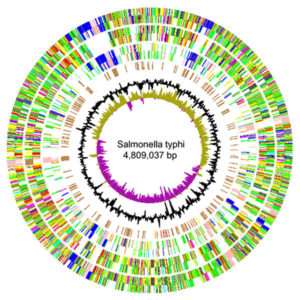Working with Pathogen Genomes (Ho Chi Minh City, Vietnam) (postponed)
10–15 May 2020
Oxford University Clinical Research Unit (OUCRU), Ho Chi Minh City, Vietnam
Hands-on training in genomic analysis of bacterial and eukaryotic pathogens
Summary
Due to the evolving situation with Covid-19, this course has been postponed. We will contact attendees with new arrangements as soon as possible.
In collaboration with the Oxford University Clinical Research Unit (OUCRU), Ho Chi Minh City, Vietnam we are pleased to announce our 2020 Working with Pathogen Genomes overseas course.
Understanding pathogen genomes, how they evolve and which genes are essential for their ability to cause disease, is a key part of the battle to reduce the global disease burden.
This five-day computational course aims to give molecular microbiologists working with bacterial and eukaryotic pathogens a working knowledge of genomic analysis. The course will be taught by members of the Parasites & Microbes teams from the Wellcome Sanger Institute in collaboration with regional instructors and speakers, and will take the form of a series of modules covering the fundamental aspects of DNA sequence analysis and exploitation.
The course begins with training in the use of genome analysis software (Artemis and ACT), developed at the Sanger Institute for genome exploration and comparative genomics. It then goes on to cover the mapping of Illumina sequence data, SNP calling, phylogenetics, genome assembly, genome annotation and RNA-seq.
Each module will be introduced with a short talk, followed by hands-on worked examples using data from bacterial and eukaryotic pathogens. A key aspect of this course is the shared interest in pathogens between instructors and participants. This common understanding of the questions and problems presented by our work results in particularly fruitful interactions.
The course is aimed at research scientists or clinicians/healthcare professionals based in institutes in Asia who are actively involved in, or soon to commence, relevant research on bacterial and eukaryotic pathogens. The course is free to attend for non-commercial applicants and limited bursaries are available to cover travel and accommodation expenses. The course will be taught in English.
Programme
The programme will include lecture and practical computer-based sessions* covering the following topics:
- Introduction to pathogen genomics
- Introduction to Artemis
- Using the Linux operating system for bioinformatics
- Comparative genomics using the Artemis Comparison Tool (ACT)
- Mapping Illumina sequence data against a reference genome
- Genome-wide phylogenetic analysis using SNPs
- Genome assembly
- Genome annotation
- Transcriptome analysis using RNA-seq data
- Two extended practical sessions applying the above topics
Learning Outcomes
After completing this course, participants should be able to:
- Understand the different file formats related to genome sequencing data
- Explore genome sequences using Artemis
- Map sequencing reads to a reference genome
- Identify genomic differences between pathogens
- Construct phylogenetic trees to understand the recent evolution of pathogens
- Produce new, annotated genome sequences
- Identify changes in pathogen gene expression
*Please note: The practical computational sessions will be taught exclusively through Unix/Linux. Computers will be provided. Participants are required to have some familiarity with the Linux operating system. This will be essential for participants to fully benefit from the course. There are numerous online introductory tutorials to the UNIX/Linux operating system and command line, including:
http://www.ee.surrey.ac.uk/Teaching/Unix
http://swcarpentry.github.io/shell-novice/
Instructors and speakers
Instructors and Assistants
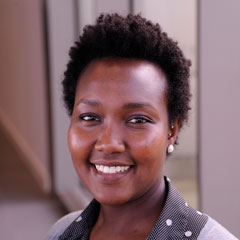
Christine Boinett
Wellcome Sanger Institute, UK
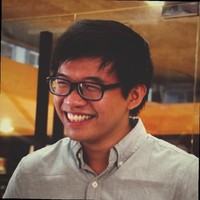
Hao Chung The
OUCRU, Ho Chi Minh City, Vietnam
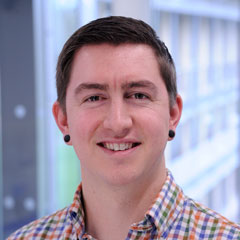
Daryl Domman
University of New Mexico, USA
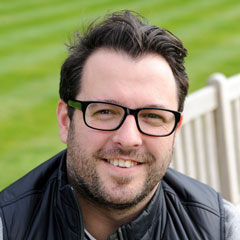
Steve Doyle
Wellcome Sanger Institute, UK
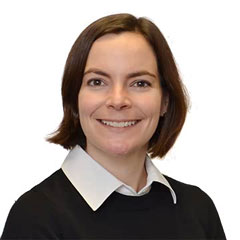
Alison Mather
Quadram Institute, UK
Se Eun Park
International Vaccine Institute, South Korea
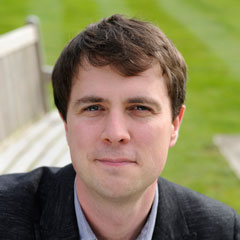
Adam Reid
Wellcome Sanger Institute, UK
Pham Thanh Duy
OUCRU, Ho Chi Minh City, Vietnam
How to apply
Prerequisites
Applicants should be research scientists or clinicians/healthcare professionals based in institutes in Asia who are actively involved in, or soon to commence, relevant research on bacterial and eukaryotic pathogens.. The course will be taught in English.
*Please note: Participants are required to have some familiarity with the Linux operating system. This will be essential for participants to fully benefit from the course. There are numerous online introductory tutorials to the UNIX/Linux operating system and command line, including:
http://www.ee.surrey.ac.uk/Teaching/Unix
http://swcarpentry.github.io/shell-novice/
How to Apply
Please click the Apply button above to begin the online application process. Places are limited and will be awarded on merit. If you have any problems with the online application process, please contact us.
Please note: Applications must be supported by a recommendation from a scientific or clinical sponsor (e.g. supervisor, line manager or head of department). A request for a supporting statement will be sent to your nominated sponsor automatically during the application process. Applicants must ensure that their sponsor provides this supporting statement by the application deadline. Applications without a supporting statement cannot be considered.
Cost
Cost
The course is subsidised by Wellcome Genome Campus Advanced Courses and Scientific Conferences and is free to attend for non-commercial applicants. Please contact us for the commercial fee.
Bursaries
A limited number of bursaries are available for each course. These are awarded on merit to cover travel, accommodation and sustenance. The maximum award for travel (economy class) will be £750. If you would like to apply for a bursary, please complete the bursary section of the online application form.
Bursaries can be applied for as part of the course application form. Applicants will be notified of a bursary award along with their place on the course, usually within one month of the application deadline. The decision of the selection committee is final.
Please note that both the applicant and sponsor are required to provide a justification for the bursary as part of the application. Priority will be given to applicants from low- and middle-income countries.
Accommodation services phishing scam – please be vigilant. More information.
Testimonials
Feedback from the 2019 course (UK)
Thank you! the course was great – very informative and the instructors were great.
Thank you very much, what I have learned is going to be very useful, and I enjoyed the journey!
It was a great course and a lovely venue. Many thanks to the instructors for their help andpatience over the week. It was much appreciated.
The instructors were excellent and did a great job at motivating the participants throughout thecourse.
Thank you – really excellent course and fantastic opportunity. Great to meet instructors and coparticipants.
Wonderful accommodation, facilities and food. Well organised.
Thank you to everyone that put together this great course!
I really enjoyed this workshop, from the instructors to the accomodation. Many compliments for the catering and the social activities!
I’d like to say thank you for every instructors for their great effort.
Just thank all the organizers for the excellent course.
